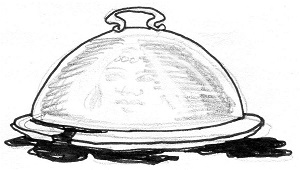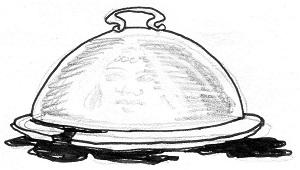

“What shall I ask for?” (Mark 6:24).
Sirach 47:2-11; Mark 6:14-29
Each of the synoptics tells the lurid tale of the beheading of John the Baptist by Herod Antipas. Herod, though the potentate, was easily manipulated by his wife, Herodias, and trapped into killing John at a palace party when wine and a titillating dance by his daughter prompted him to offer her anything she wanted in front of his guests. Coached by her mother, who sought revenge on John for publicly rejected her illegal marriage to Herod, the girl asked for “The head of John the Baptist at once on a platter.”
What adds drama to the story was that Herod feared John as a prophet and knew him to be a righteous and holy man. Though he had arrested and jailed him to please Herodias, Herod was drawn to John and could not resist going down into the dungeon to listen to him preach. Yet he has him beheaded rather than lose face with his party guests. It is a shameful moment even for someone as corrupt as Herod. He will take from it a paranoia about John’s ghost, which he decides has returned in the person of Jesus, another prophetic figure he is eager to see.
Herod is like Pilate in his need for approval and cowardly willingness to cave into public pressure even when it goes against his own judgment. Pilate resists the Sanhedrin until the crowds threaten to riot, which would get back to Rome. Outmaneuvered, he sends a man he regards as innocent first to be flogged, then crucified. Herod and Pilate illustrate one of the inverse dynamics of despots who rule by fear; they are surrounded by sycophants who cater to their egos while depriving them of accurate feedback, thus weakening their rule.
Jesus instilled both fascination and fear in Herod because he thought he might be John risen from the dead. He will finally get the chance to meet Jesus when Pilate sends him to his court. Herod mocks Jesus, who remains silent, the most severe indictment possible—to ignore him as having no real authority. He is a sham head of a state that is effectively headless, having forfeited his integrity when he murdered John, the one Jesus called the “greatest person ever born.” Herod uses Jesus to deepen his complicity with Pilate, two small men who are remembered in history only because of their treatment of Jesus, who rises from the dead in glory to judge the world.
Advertisement








